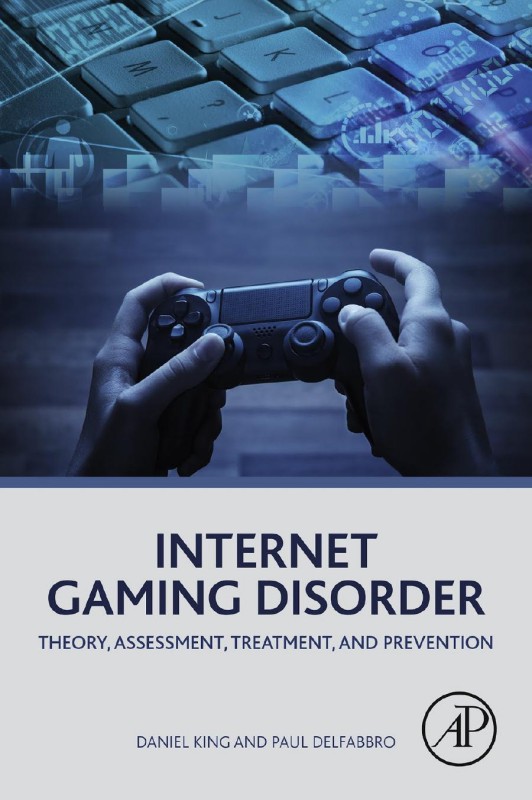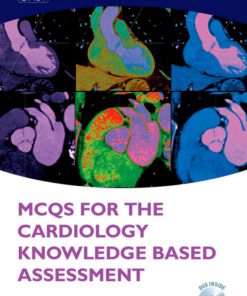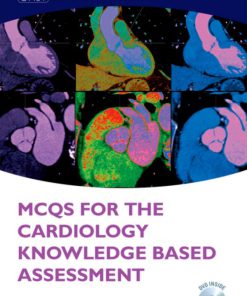Internet Gaming Disorder Theory Assessment Treatment and Prevention 1st edition by Daniel King, Paul Delfabbro 0128129255 9780128129258
$50.00 Original price was: $50.00.$25.00Current price is: $25.00.
Authors:Daniel King Paul Delfabbro , Series:Gaming [156] , Author sort:Delfabbro, Daniel King Paul , Languages:Languages:eng , Published:Published:Jan 2019 , Publisher:Apress
Internet Gaming Disorder Theory, Assessment, Treatment & Prevention 1st edition by Daniel King, Paul Delfabbro – Ebook PDF Instant Download/DeliveryISBN: 0128129255, 9780128129258
Full download Internet Gaming Disorder Theory, Assessment, Treatment & Prevention 1st edition after payment.

Product details:
ISBN-10 : 0128129255
ISBN-13 : 9780128129258
Author : Daniel King, Paul Delfabbro
Internet Gaming Disorder: Theory, Assessment, Treatment, and Prevention is an informative and practical introduction to the topics of Internet gaming disorder and problematic gaming. This book provides mental health clinicians with hands-on assessment, prevention, and treatment techniques for clients with problematic gaming behaviors and Internet gaming disorder. It provides an overview of the existing research on epidemiology, risk and protective factors, and discusses the distinct cognitive features that distinguish gaming from gambling and other related activities and disorders. Clinicians will find interest in discussion of the latest developments in cognitive-behavioral approaches to gaming disorder as well as the best structure for clinical interviews. Included in clinical sections are details of the key indicators of harm and impairment associated with problem gaming and how these might present in clinical cases. Internet Gaming Disorder is strongly evidence-based, draws extensively upon the latest international research literature, and provides insights into the likely future developments in this emerging field both in terms of technological development and new research approaches.
Internet Gaming Disorder Theory, Assessment, Treatment & Prevention 1st Table of contents:
1: An introduction to gaming and IGD
Abstract
Introduction and overview
What are video games?
What are MMOs and MOBAs?
Other popular game types
Recent gaming innovations
Research methodologies for IGD
Prevalence of problem gaming and IGD
Why does IGD matter?
Addressing the skill gap in IGD care
Aim and coverage of this book
Summary: The procession of simulacra
2: Theories and models of IGD
Abstract
Introduction and overview
Defining addiction
Addiction components: Does one size fit all?
Gaming as an addiction: Studies in the arcade arts
Gambling tools to study gaming
Problem gaming: A brief history of “time”
DSM-5 classification of IGD
Challenges in adapting addiction concepts: The case of “tolerance”
Prototypical IGD models
Model comparisons
Are we overcompensating?
The need for a behavioral analysis
Taking a stance on IGD and gaming
Summary: Human modeling
3: Risk and protective factors for IGD
Abstract
Introduction and overview
How does gaming actually cause harm?
Individual differences
External factors
Gaming-related factors
Profiles of problem gamers
Applying profiles to person-centered treatment
Summary: The risk of the robots
4: Cognitive features of IGD
Abstract
Introduction and overview
IGD: The first criterion
How does gaming differ from gambling?
Is gaming a rational choice?
The human-game interaction
Gaming and decision-making biases
Other cognitive approaches
Introducing gaming-specific beliefs
A new framework for gaming-related beliefs
Normalizing digital possessions
Games store memories
Metacognitions in IGD
Shifting gaming-related beliefs with abstinence
Summary: Thinking, fast and skilled
5: Screening and assessment of IGD
Abstract
Introduction and overview
Avoiding “overpathologizing”
Early screening inconsistencies
Internet gaming disorder—DSM-5 IGD criteria revisited
Gaming disorder—Beta draft ICD-11 description
Hazardous gaming—Beta draft ICD-11 description
Assessment of gaming pattern and associated problems
Functional analysis
Developmental profile
Reasons for seeking treatment
Treatment goals and expectations
Treatment history and outcome
Case formulation
Gaming problems: Misuse or mischief?
Screening: Choosing the right tools
Some common pitfalls in screening
Recommended screening tools
The Internet Gaming Disorder Scale
Gaming Motivation Scale (GAMS)
Gaming-Contingent Self-Worth Scale (GCSW)
Internet Gaming Cognition Scale (IGSC)
Internet Gaming Withdrawal Scale (IGWS)
Summary: A lamentation of swans
6: Case formulation for IGD
Abstract
Introduction and overview
Classification
What is the core psychopathology of IGD?
Models of gaming disorder revisited
Known unknowns in CBT
Introducing a framework for case formulation
Early experiences and family factors
Core beliefs: The self, the world, and others
Intermediate beliefs: Conditional assumptions, rules, and attitudes
Triggers: Why an addiction to games specifically?
What functions does IGD serve?
Intrapersonal functions of gaming
Interpersonal functions of gaming
Other maintenance factors
Clinical case examples
Shane: An adolescent client with IGD
Chris: An adult client with IGD
Summary: Framing the gaming
7: Treatment for IGD
Abstract
Introduction and overview
The big picture on treatment evidence
Drugs or therapy: Which is more effective?
How can the evidence base be improved?
Treatment aims: Taking control of the game?
Barriers to change
Psychoeducation: The main themes
What should gamers expect when they game less often?
Addressing fear of missing out
Tailoring therapy to the individual
Behavioral approaches to IGD
Cognitive approaches for IGD
Behavioral experiments
Managing realistic beliefs
Relapse prevention
Family-based approaches for adolescents
Residential and camp approaches
Summary: The call of duty of care
8: Prevention and harm reduction for IGD
Abstract
Introduction and overview
Gaming as a way of life
Types of prevention
Global understanding of prevention evidence
A focus on school-based programs
Examining technological measures
The policy response: The role of the authorities
The role of parents
What parents should know
Current regulatory approaches
Barriers to regulating devices
Transparency and ethical game design
Prevention in action: Regional case examples
What governments should consider
Harm reduction strategies
The perspectives of gamers
Industry and social responsibility
Industry-academia collaboration
Summary: Real-time strategy
9: Future directions for IGD
Abstract
Introduction and overview
Moral panic attacks
Believe IGD or not
Gaming bias among professionals
Future research priorities and objectives
Other ways to expand the field
Summary: The endgame
People also search for Internet Gaming Disorder Theory, Assessment, Treatment & Prevention 1st:
internet gaming disorder symptoms
what is internet gaming disorder
internet gaming disorder meaning
is internet gaming disorder real
internet gaming disorder pdf












